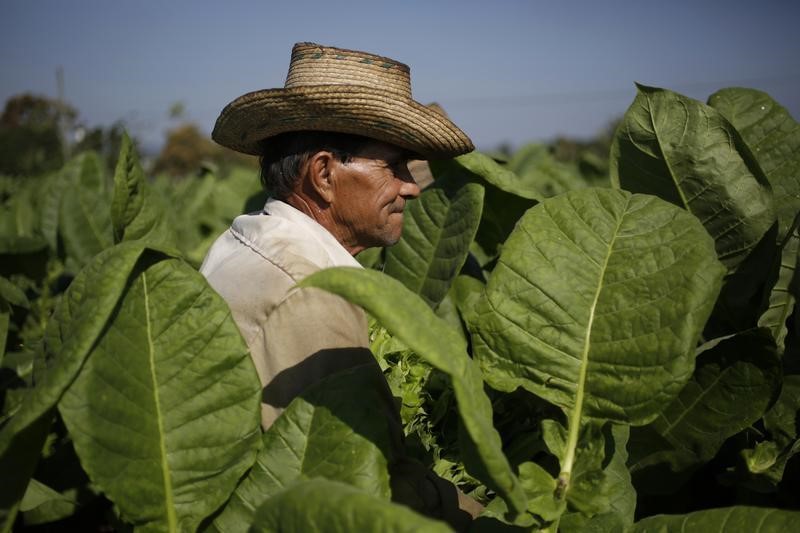HAVANA (Reuters) - Cuban farmers may now hire laborers directly rather than through cooperatives, the government said on Friday, marking a modest advance to loosen controls in its Soviet-style economy.
Communist-led Cuba has introduced a series of reforms under President Raul Castro but the pace of change has slowed in the past year, raising questions about its commitment to reform.
"The new resolution aim fundamentally to stimulate the hiring of workers related to agricultural labor in an agile, orderly and legal way," Cuban state-run media wrote on Friday.
In other sectors of the economy, like restaurants, Cuba has already allowed small business holders to directly hire staff.
The new regulations are positive in that they streamline labor conditions, analysts said, but they were not enough.
"This is a step in the right direction but these remain isolated measures allowing Cuba to advance at a snail's pace," said ex-Cuban central bank official Pavel Vidal, who is now a professor at Universidad Javeriana Cali in Colombia.
"The demand for food has risen together with the arrival of tourists to the island, so it is crucial to do away with the hurdles to production," he said, citing as examples the dual currency and restrictions to trade.
Like many of its Caribbean neighbors, Cuba imports more than two-thirds of its food, despite having rich farmland and demand is rising as tourism increases.
Market reforms have aimed to boost production. One measure has been to hand out land to new farmers.
Yet Cuba has backtracked on some reforms in the past year, for example restoring some price controls in the face of rising food costs. Analysts say this may ease the short-term pain for Cuban consumers but it is counterproductive in the longer term.
Paolo Spadoni, the author of several books on the Cuban economy, said Cuba should on the contrary liberalize distribution, reduce the state quota for Cuban producers and give farmers freer rein to set their own prices.
"(This reform) signals the urgency to tackle major problems in agriculture," said Spadoni, associate professor of political science at Augusta University in the United States. "But the resolution alone will do little to boost production and efficiency unless it will be accompanied by additional changes."
